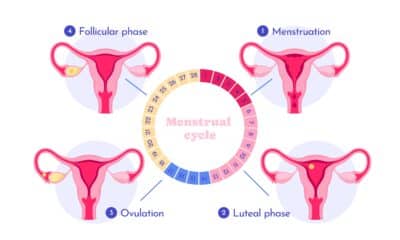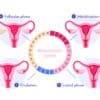Morning Sickness Explained: Your Body’s Way of Fighting Off Threats, Not Just Hormonal Chaos
For many women, morning sickness is an expected yet challenging aspect of pregnancy, along with preparing for a new baby and selecting a name. Recent research has shed light on potential underlying causes and redefined our understanding of this common experience.
Morning sickness carries several misconceptions; some people trivialize it as merely a hormonal imbalance, while others believe its occurrence is random. However, a significant study from UCLA offers a fresh perspective, suggesting that morning sickness might arise as a natural immune response rather than just a discomfort of pregnancy.
The National Institutes of Health report that around 80% of pregnant women experience some form of nausea in the early stages of their pregnancy, often leading to vomiting and strong aversions to particular foods and smells. Surprisingly, experts assert that these symptoms may be evolutionary adaptations designed to safeguard both mother and fetus. “A pregnant woman’s immune system faces a unique challenge,” states Molly Fox, a UCLA anthropology professor involved in the groundbreaking study. “It must defend against infections while simultaneously protecting the fetus, which possesses half of its genetic material from the father and may, therefore, appear foreign to the mother’s immune system.”
How Was the Study Conducted?
The team from UCLA examined blood samples from 58 Latina women in Southern California throughout their pregnancy and into the postpartum period. A major objective of the study was to measure the levels of immune system molecules known as ‘cytokines.’ These proteins are crucial for signaling the body to initiate robust defenses against illness while managing inflammation. In addition, participants completed questionnaires detailing their symptoms related to morning sickness, including specific food and smell aversions during the early phases of their pregnancy.
What Were the Findings?
The analyzed data revealed that 64% of the participants reported experiencing aversions to certain odors or foods, primarily triggered by tobacco smoke and meat. Notably, women sensitive to tobacco smoke displayed a more pronounced inflammatory response. This reaction aligns with the researchers’ hypothesis that morning sickness might represent an evolutionary adaptation aimed at reducing pregnant women’s exposure to harmful substances.
While UCLA emphasizes that definitive conclusions are premature and further research with larger populations is necessary, the query arises as to why humans experience morning sickness while other mammals largely do not. “In many mammals, a fetal compartment has barriers that separate it from the mother’s bloodstream and immune cells,” Fox explains. “In contrast, humans possess a uniquely invasive placenta that allows fetal cells to be directly immersed in maternal blood, necessitating specific immune strategies to prevent the mother’s immune system from attacking the fetus.”
This unique immunological environment may trigger nausea, nudging mothers toward food avoidance as an additional protective measure. “Nowadays, pregnancy warning labels on certain food products like ground beef and soft cheese highlight the dangers of foodborne illnesses during pregnancy,” adds Professor Daniel Fessler, another collaborator on the study. “Aversions to specific odors and foods, alongside nausea and vomiting, might reflect an evolutionary mechanism with a similar goal.”
The researchers aim for their findings to emphasize that nausea and vomiting are normal, biologically rooted experiences that can characterize healthy pregnancies. Additionally, the insights may pave the way for practical workplace adjustments, helping to create environments where pregnant women can avoid potential morning sickness triggers whenever possible.
















